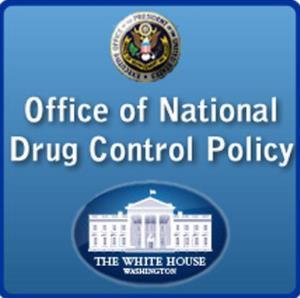The practice is "bad law and bad criminal justice policy," the author concludes.
There are some policy prescriptions that could lower that toll, but some other politically popular ones would likely increase it.
Oregon drastically reduces the daily purchase limit for patients, Oklahoma continues to try to get its nascent system up and running, and more.
More jail and prison guards gone bad, a kinky New Jersey cop is in trouble, and more.
New polls in New Jersey and Wisconsin show solid support for marijuana legalization, Chicago harm reduction pioneer Dan Big has died too early, the FDA approves clinical trials of psilocybin for treatment-resistant depression, an Ohio drug defelonization initiative is on the November ballot, and more.
An Arizona prosecutor gets challenged for trying to profit off small-time pot offenders, Oregon regulators slash the daily purchase amounts for medical marijuana patients, a Louisiana prisoner featured in the Chronicle years ago gets a break, and more.
Even as a California safer injection site bill approaches final passage, the Justice Department takes aim at the harm reduction practice; state financial regulators want Congress to act on marijuana banking, and more.
The Trump administration has a secret committee to trash pot, Canada okays a roadside drug testing device for motorists, Illinois becomes the latest state to allow medical marijuana as an alternative to opioids, and more.
As the nation grapples with the deadliest drug crisis in its history -- more than 72,000 people died of drug overdoses last year, according to the Centers for Disease Control and Prevention -- prosecutors across the country have rushed to embrace the use of "drug-induced homicide" charges as a means of combating the problem. That means charging the people who sold the fatal dose -- or sometimes just the people who shared it -- with murder or manslaughter and sending them away to prison for lengthy terms.

Drug-induced homicide charges are a regression to the lock 'em up policies of last century's drug war. (ussc.gov)
Faced with a public clamor to "do something," prosecutors are resorting to this facile, politically popular tactic in order to "send a message" of toughness to dealers in a bid to break the back of the epidemic. But a new study, "
America's Favorite Antidote: Drug-Induced Homicide in the Age of the Overdose Crisis" concludes that the practice is worse than ineffective -- it's actually counterproductive.
Such prosecutions are "bad law and bad criminal justice policy" that have only worsened the opioid crisis that has taken tens of thousands of American lives, writes Leo Beletsky, associate professor of law and health sciences of the Northeastern University School of Law.
Beletsky notes that while the strategy dates back to 1986, in an atmosphere of moral panic set off by the death of NBA player Len Bias of an overdose from cocaine given to him by a friend, it has really taken off in recent years as the country lives through what he calls the "worst drug crisis in US history." Now, more than half the states have some form of drug-induced homicide law, while others are considering amending them to include fentanyl.
But the prosecutions amount to little more than "policy theater" rooted in the punitive approach long favored in the country's war on drugs, Beletsky argues. That is an unsuccessful approach that has largely failed to reduce drug use or stem the flow of drugs into the country, he notes.
Beletsky's study looked at data from 263 drug-induced homicide prosecutions between 2000 and 2016. One of the most striking findings was that, while such prosecutions are supposedly aimed at drug dealers, at least half of those charged were family members or partners.
"In many jurisdictions, it is enough to have simply shared a small amount of your drugs with the deceased to be prosecuted for homicide," he notes.
Another striking -- yet completely unsurprising -- finding is that when he applied his data to what he called "existing racially disparate patterns of drug law enforcement," he found evidence of racial differences in the application of drug-induced homicide laws as well. Such selective enforcement resulted in "gaping disparities between whites and people of color."
But the most bitter irony can be found in the impact of such laws on actual overdose deaths. Even though opioid overdose reversal drugs such as naloxone are now in wide use, many friends, fellow users, and family members are reluctant to call for emergency help because they fear the legal repercussions, even if they didn't provide the lethal drugs.
"Police involvement at overdose scenes may result in arrests on drug, parole violation, weapons, and other charges," wrote Beletsky. "It may also lead to loss of child custody, violation of community supervision conditions, and other legal consequences rooted in the pervasive stigmatization of substance use, but not directly linked to criminal law. Research suggests that fear of police contact and legal detriment is actually the single most important reason why people who witnessed overdoses do not seek timely emergency medical help," he concludes. "Aside from crowding out evidence-based interventions and investments, these prosecutions run at complete cross-purposes to efforts that encourage witnesses to summon lifesaving help during overdose events."
Rather than "tougher" policy responses to drug use such as the resort to drug-induced homicide charges, policymakers should be subjecting failed punishment-oriented policies to rigorous scrutiny while instead developing a "population-based" health policy emphasizing treatment and diversion from the criminal justice system, he suggested.
"A system that relies on the instrument of punishment to regulate the behavior of people affected by severe SUD (Substance Use Disorder) fundamentally misconstrues the nature of addiction," Beletsky writes. "The established scientific consensus predicts that individuals affected by addiction will substantially discount -- or totally disregard -- legal risks and threats of punishment as a matter of course. This scientific construct has yet to be translated into US jurisprudence, however."
"Drug-induced homicide prosecutions and other similar punitive approaches to the opioid crisis, such as curbing prescriptions and subjecting patients to drug testing regimes, have crowded out public health strategies that have been proven to work in limiting the deleterious impacts of widespread opioid use," he writes.
"The bottom line," Beletsky writes, "is that, when it comes to policies that hold the most empirical promise for addressing the overdose crisis, we know what to do; we just are not doing it."
back to top
The most recent data from the Centers for Disease Control and Prevention, released in mid-August, showed a record 72,000 drug overdose deaths last year, with 49,000 related to heroin, fentanyl and prescription opioids. According to the authors of a study released last week in the American Journal of Public Health, that could be the new normal.
The study, by Stanford researchers Allison Pitt, Keith Humphreys, and Margaret Brandeau, attempts to assess the number of opioid-related deaths we could expect to see over the next decade, as well as the impact of different policy responses on reducing the death toll.
The researchers said there are steps that can be taken to reduce the death toll, but also that some seemingly simple solutions, such as cracking down on opioid prescribing for chronic pain, could actually increase the toll. And even those policies that could cut the opioid death rate are likely to do so only marginally.
Using a mathematical model, the researchers estimate that some 510,000 people will die over the next decade because of opioid use. The number includes not only drug overdoses but also other opioid-related deaths, such as HIV infections caused by shared needles.
Even including the non-overdose deaths, the number is staggering. Last year was the worst year ever for opioid-related overdose deaths, but this research suggests we are going to see year after year of similar numbers.
Making the overdose reversal drug naloxone more widely available could cut opioid-related deaths by 21,200 over the next decade, allowing greater access to medication-assisted therapies with drugs such as buprenorphine and methadone would save another 12,500 lives, and reducing opioid prescribing for acute pain would prevent another 8,000 deaths, the researchers said. But those three policy moves combined would shave less than 10 percent off the overall death toll.
"No single policy is likely to substantially reduce deaths over 5 to 10 years," the researchers wrote.
While harm reduction interventions such as those above would save lives, some aspects of tightening opioid prescribing would actually increase opioid-related deaths by as much as the tens of thousands -- because they increase heroin deaths more than they cut painkiller deaths. Moves such as reducing prescribing for chronic pain, up-scheduling pain relievers to further restrict their prescribing, and prescription drug monitoring programs all tend to push existing prescription opioid users into the illicit heroin and fentanyl markers all end up contributing to net increases in opioid deaths over the 10-year period, the researchers found.
On the other hand, other interventions on the prescribing front, such as reducing acute prescribing for acute pain (pain that may be signficant but is short-term), reducing prescribing for transitional pain, reformulating drugs to make them less susceptible to misuse, and opioid disposal programs, appear to prevent more deaths than they cause.
Ultimately, reducing the opioid death toll includes reducing the size of the opioid-using population, the researchers say. That implies making addiction treatment more available for those currently using and preventing the initiation of a new generation of opioid users. Restrictions on prescribing, while possibly driving some current users to dangerous illicit markets, can have a long-term impact by reducing the number of people who develop a dependence on opioids.
Whether that's a tolerable tradeoff for those pain patients who don't get the relief they need from other medications -- or for patients and others who end up dying from street heroin but might have lived despite their prescription opioid use -- is a different question.
By all appearances, when it comes to the loss of life around opioids, it looks like a pretty sad decade ahead of us.
This article was produced by Drug Reporter, a project of the Independent Media Institute.
back to top
Oregon drastically reduces the daily purchase limit for patients, Oklahoma continues to try to get its nascent system up and running, and more.
IllinoisIllinois Governor Signs Bill to Allow Medical Marijuana as Alternative to Opioids. Gov. Bruce Rauner (R) on Tuesday signed into law a bill to allow patients to use medical marijuana as an alternative to opioids. "Opioid abuse disorder is taking the lives of Illinoisans, thousands of lives. Opioid abuse disorder is disrupting and destroying families across our state and across the country," Rauner said at the bill signing at the Chicago Recovery Alliance. "We've got to do everything we can to stop this vicious epidemic, and today, I'm proud to sign a bill that helps us stop this epidemic. Medical cannabis creates an opportunity to treat pain in a less intrusive, less obstructive way than opioids."
Oklahoma Proposed Medical Marijuana Regulations Now Open for Public Comment. State officials are now asking the public for its input on the regulation and implementation of medical marijuana in the state. "Lawmakers in the legislative working group are seeking a path forward to implement State Question 788 in a way that conforms to the desires of voters who passed the law," said Speaker Charles McCall (R-Atoka). "To do that effectively, the working group needs as much input as possible from citizens -- supporters, advocates, patients, health-care providers, public safety and law enforcement officers and even those who have concerns. I would encourage all Oklahomans who have an interest in this issue to use this opportunity to share input and have their voices heard." Comments can be sent to [email protected]. Messages will then be shared with members of the working group.
Oregon
Oregon Regulators Slash Daily Purchase Limit for Patients. In a bid to reduce leakage into the black market, the Oregon Liquor Control Commission last Thursday dramatically reduced the amount of medical marijuana patients can purchase each day. Medical cardholders may now buy only one ounce a day, not the 24 ounces that had been the limit. The emergency change is in effect until December 27.
Utah
Mormon Church Sends Out Letter Opposed Utah Medical Marijuana Initiative. The Salt Lake City-based Church of Latter Day Saints has mailed a letter to church members urging a "no" vote on the state's November medical marijuana initiative. The letter claims the measure would create "a serious threat to health and public safety, especially for our youth and young adults, by making marijuana generally available with few controls."
[For extensive information about the medical marijuana debate, presented in a neutral format, visit MedicalMarijuana.ProCon.org.]
back to top
More jail and prison guards gone bad, a kinky New Jersey cop is in trouble, and more. Let's get to it:
In Raymond, Mississippi, two Hinds County jail guards were arrested last Tuesday on suspicion they were providing drugs and other contraband to inmates. Guards Marcell Anderson, 21, and Shauntavia Lee, 26, went down after narcotics investigators got a tip. They face separate charges of possessing marijuana, synthetic cannabinoids, Xanax, and meth in a correctional facility with the intent to distribute.
In Monroe Township, New Jersey, a Monroe Police officer was arrested last Wednesday for misusing a police database to provide information to drug suspects. Sgt. Jody Collins, 41, is also accused of engaging in sexual activity on duty and providing money to settle a drug debt by someone known to sell drugs. He is charged with official misconduct and computer crimes.
In Forest Park, Ohio, a now former Colerain Township police officer was arrested last Thursday on charges she stole medications from a home "while there on official business." Ashley Meyer allegedly stole the medications in late 2017 and they showed up being offered for sale in January of this year. When police searched Meyer's home, they also found methamphetamine, marijuana, and "a white powder substances, possibly crack cocaine or heroin" inside. Meyer is charged with theft in office, trafficking in drugs, and drug possession.
In Salisbury, Delaware, a state prison guard was sentenced Tuesday to more than four years in federal prison in a massive conspiracy to smuggle and sell drugs. Former guard Rachelle Hankerson, 28, was one of 18 guards among 80 total defendants in the case and pleaded guilty to racketeering conspiracy. She is the 77th of the 80 to be sent to prison. She admitted charging inmates and their "facilitators" at least $500 for each package of contraband smuggled into the prison.
back to top
New polls in New Jersey and Wisconsin show solid support for marijuana legalization, Chicago harm reduction pioneer Dan Big has died too early, the FDA approves clinical trials of psilocybin for treatment-resistant depression, an Ohio drug defelonization initiative is on the November ballot, and more.

magic mushrooms (Flickr/Green)
California Legislature Passes Bill to Overturn Old Marijuana Convictions. The state Senate Wednesday approved Assembly Bill 1793, which directs prosecutors throughout the state to overturn convictions for acts that are no longer illegal under the state's Prop 64 marijuana legalization initiative. The bill would also reduce many felony convictions for marijuana-related crimes to misdemeanors. It was approved by the Assembly in May and now goes to the desk of Gov. Jerry Brown (D).
New Jersey Poll Shows Strong Support for Legalization. A Quinnipiac poll released Wednesday has support for marijuana legalization at 62%. Among respondents between 18 and 34, that figure was 90%. The poll comes as Gov. Phil Murphy (D) and legislative leaders push to get a legalization bill passed next month.
Wisconsin Poll Shows Strong Support for Legalization. A new Marquette Law poll has support for legalization in the Dairy State at 61%. Gov. Scott Walker (R) is opposed to marijuana legalization, calling it a gateway drug. He's polling at 46% in the same poll.
Medical Marijuana
Mormon Church Sends Out Letter Opposed Utah Medical Marijuana Initiative. The Salt Lake City-based Church of Latter Day Saints has mailed a letter to church members urging a "no" vote on the state's November medical marijuana initiative. The letter claims the measure would create "a serious threat to health and public safety, especially for our youth and young adults, by making marijuana generally available with few controls."
Psychedelics
FDA Approves Psychedelic Magic Mushrooms Ingredient Psilocybin for Depression Trial. The Food & Drug Administration has approved the use of psilocybin for a drug trial in treatment-resistant depression. Compass Pathways, a life sciences firm, now has a green light to perform the clinical trials. The phase two trial with 216 patients will get underway next month.
Harm Reduction
Chicago Harm Reduction Pioneer Dan Bigg Dead at 59. Dan Bigg, a co-founder of the Chicago Recovery Alliance and a long-time activist died Tuesday at his home. The cause of death remains undetermined pending further tests. He was a pioneering needle exchange worker in the 1990s and pushed for putting naloxone in the hands of drug users and their loved ones as opioid overdose deaths began to soar more than a decade ago. Friends and colleagues said that thousands of people who could have died from overdoses or infectious disease are alive today because of Bigg's stalwart activism. He will be missed.
Sentencing
Ohio Initiative Would Defelonize Drug Possession, Cut Sentences. Voters in the Buckeye State will vote on a constitutional amendment that would reduce penalties for non-violent drug crimes by making drug use and possession a misdemeanor instead of a felony. Issue 1 also bars the jailing of probationers merely for drug use or possession and allows sentence reductions of up to 25% for inmates who participate in rehabilitation, work, or educational programming.
back to top
An Arizona prosecutor gets challenged for trying to profit off small-time pot offenders, Oregon regulators slash the daily purchase amounts for medical marijuana patients, a Louisiana prisoner featured in the Chronicle years ago gets a break, and more.

Oregon patients will only be able to buy one ounce a day under new emergency rules. (Creative Commons)
Arizona County Attorney Sued Over Drug Court Diversion Program for Smalltime Marijuana Offenders. The Civil Rights Corps, a Washington, DC-based advocacy group, and a local law firm have sued Maricopa County (Phoenix) Attorney Bill Montgomery. They allege that he and the county drug court diversion program are preying on and profiting off people charged with minor pot possession offenses. Under the state's harsh laws, possession of even small amounts is a felony, but first- and second-time offenders are eligible for a diversion program. The problem is the diversion program has a $1,000 fee, and those who cannot pay the entire fee linger in the program, paying $15 to $20 fees for drug testing as often as several times a week and face being tried as felons if they fail to complete the program. "The complaint explains that the marijuana diversion program operated by TASC Inc. and the Maricopa County Attorney's Office represents a two-tiered legal system," Civil Rights Corps Attorney Dami Animashaun said in a statement. "Wealthy people buy their way off diversion quickly, while poor people risk being expelled from the program and prosecuted for a felony solely because they cannot afford to pay."
Vermont Democrats Call for Taxed, Regulated Legal Marijuana Sales. Vermont has already legalized the personal possession and home cultivation of marijuana, and now the state's Democratic Party has formally endorsed expanding legalization to include taxed and regulated legal marijuana sales. "We believe that marijuana should be legal, taxed and regulated in the interests of consumer and public health, and economic opportunity," reads a platform plank adopted by delegates at the Vermont Democratic Party's platform convention on Sunday.
Medical Marijuana
Oregon Regulators Slash Daily Purchase Limit for Patients. In a bid to reduce leakage into the black market, the Oregon Liquor Control Commission last Thursday dramatically reduced the amount of medical marijuana patients can purchase each day. Medical cardholders may now buy only one ounce a day, not the 24 ounces that had been the limit. The emergency change is in effect until December 27.
Illinois Governor Signs Hemp Bill. Gov. Bruce Rauner (R) on Saturday signed a bill legalizing industrial hemp, the Illinois Hemp Act. "Legalizing the farming of industrial hemp just makes good sense," Rauner said in a statement. "Roughly 38 states -- including our neighbors in Wisconsin, Kentucky, Indiana, Missouri and Tennessee -- have allowed or are considering allowing cultivation of this crop for commercial, research or pilot programs. Our farmers should have this option as well." The state Department of Agriculture will issue licenses to farmers who want to grow it, and regulators will establish rules for THC-level testing of industrial hemp crops.
Heroin and Prescription Opioids
New York Governor Signs Legislation To Expand Use Of Rehabilitation And Diversion Services To Combat Heroin And Opioid Epidemic. Governor Andrew Cuomo (D) last Friday signed legislation (A.10403/S.8760) to help in the fight against the heroin and opioid epidemic by diverting substance-dependent individuals who are involved in the criminal justice system. This legislation provides another form of support to prosecutors and law enforcement officers as they seek treatment and counseling for people who are addicted to opioids. These diversion models include law enforcement assisted diversion, known as LEAD, and other programs treating substance abuse and addiction. The legislation expands the allowable use of funding from seized or forfeited assets by law enforcement and the Office of Alcoholism and Substance Abuse."We must use every tool at our disposal to combat this nation's opioid epidemic and the underlying issues that lead people to commit crime, and this legislation makes available additional funding to help New Yorkers in need," Governor Cuomo said. "By helping New Yorkers turn their lives around, this program helps strengthen communities, increase public safety and break the vicious cycle of recidivism once and for all."
Sentencing
One Louisiana Man Gets a Sentence Cut. A Louisiana man sentenced to life in prison for marijuana possession as a habitual offender has received a sentence reduction that will allow him to go free in a matter of weeks. Jody Butler's case was covered by the Chronicle's Clarence Walker back in 2013, but it took until now for justice to be done. New Orleans Parish District Attorney, who made a career of imposing long sentences on small-time drug offenders, raised no objection to a sentence reduction in Butler's case, the latest in which he has backpedaled away from his earlier, harsher stance.
back to top
Even as a California safer injection site bill approaches final passage, the Justice Department takes aim at the harm reduction practice; state financial regulators want Congress to act on marijuana banking, and more.

Vancouver's InSite safer injection site. Coming soon to San Francisco? (Creative Commons)
State Financial Regulators Call on Congress to Deal With Marijuana Banking Problems. The top financial regulators in 13 states sent a letter last week to congressional leaders demanding that they take action to protect banks working with marijuana businesses. The conflicts between state-level legalization and federal prohibition have created confusion in the financial sector and jeopardized public safety, the regulators said. "It is incumbent on Congress to resolve the conflict between state cannabis programs and federal statutes that effectively create unnecessary risk for banks seeking to operate in this space without the looming threat of civil actions, forfeiture of assets, reputational risk, and criminal penalties," the regulators wrote. "While Congress has taken some action, such as the Rohrabacher amendment prohibiting federal funds being used to inhibit state medicinal marijuana programs, this has been an impermanent approach that requires a permanent resolution." Regulators from Alaska, Connecticut, Hawaii, Louisiana, Michigan, Montana, Nevada, New York, Oklahoma, Oregon, Pennsylvania, Utah and Washington State signed the letter.
Medical Marijuana
Oklahoma Proposed Medical Marijuana Regulations Now Open for Public Comment. State officials are now asking the public for its input on the regulation and implementation of medical marijuana in the state. "Lawmakers in the legislative working group are seeking a path forward to implement State Question 788 in a way that conforms to the desires of voters who passed the law," said Speaker Charles McCall (R-Atoka). "To do that effectively, the working group needs as much input as possible from citizens -- supporters, advocates, patients, health-care providers, public safety and law enforcement officers and even those who have concerns. I would encourage all Oklahomans who have an interest in this issue to use this opportunity to share input and have their voices heard." Comments can be sent to [email protected]. Messages will then be shared with members of the working group.
Harm Reduction
Justice Department Attacks Safer Injection Sites. In an op-ed in the New York Times titled "Fight Drug Abuse, Don't Subsidize It," Deputy Attorney General Rod Rosenstein attacked safer injection sites as "very dangerous" and argued they would "only make the opioid crisis worse." He also points out that they are federally illegal and warns that violations are punishable by up to 20 years in federal prison. His op-ed comes as cities such as New York, Seattle, and San Francisco advance plans to open such facilities in a bid to reduce harms.
California Safer Injection Site Bill Passes Senate. The Senate voted Monday to approve Assembly Bill 186, which will allow the city of San Francisco to undertake a three-year, pilot safer injection site program. The bill now goes back to the Assembly for a final concurrence vote before heading to the desk of Gov. Jerry Brown (D).
back to top
The Trump administration has a secret committee to trash pot, Canada okays a roadside drug testing device for motorists, Illinois becomes the latest state to allow medical marijuana as an alternative to opioids, and more.
Marijuana PolicyTrump Administration Has Secret Committee to Trash Pot. The White House has created a multi-agency committee to combat rising public support for marijuana legalization and make legalization initiatives look bad, according to a report today in Buzzfeed News. The Marijuana Policy Coordination Committee has instructed federal agencies including the DEA to come up with and submit "data demonstrating the most significant negative trends" about marijuana and the "threat" in poses to the country. Reports from the committee will be used to brief Trump "on marijuana threats." The committee is being coordinated by the White House Office of National Drug Control Policy (ONDCP -- the drug czar's office).
New Jersey Attorney General Issues Guidance on Marijuana-Related Prosecutions. The Office of the Attorney General issued guidance to municipal prosecutors regarding prosecution of marijuana-related cases. This guidance comes after Attorney General Gurbir Grewal convened a working group on marijuana prosecutions earlier this summer. The guidance reaffirms that local prosecutors cannot decriminalize marijuana possession, but they can use their discretion on a case-by-case basis "based on the particular facts and applicable law, and consistent with their ethical obligations to the state, the defendants, and the courts." The guidance merely highlights the need for the state to actually pass marijuana legalization, advocates said.
New York Assembly to Hold Public Hearings on Marijuana Legalization. The Assembly will hold four public hearings this fall on whether and how to legalize marijuana. These hearings will follow a well-attended hearing in the Assembly on the topic earlier this year. Gov. Andrew Cuomo (D) has recently embraced legalization, and a legalization bill is before the Assembly.
Medical Marijuana
Illinois Governor Signs Bill to Allow Medical Marijuana as Alternative to Opioids. Gov. Bruce Rauner (R) on Tuesday signed into law a bill to allow patients to use medical marijuana as an alternative to opioids. "Opioid abuse disorder is taking the lives of Illinoisans, thousands of lives. Opioid abuse disorder is disrupting and destroying families across our state and across the country," Rauner said at the bill signing at the Chicago Recovery Alliance. "We've got to do everything we can to stop this vicious epidemic, and today, I'm proud to sign a bill that helps us stop this epidemic. Medical cannabis creates an opportunity to treat pain in a less intrusive, less obstructive way than opioids."
International
Canada Approves First Roadside Drug Test Device for Marijuana. Justice Minister Jody Wilson-Raybould has approved a device designed to detect whether drivers are under the influence of marijuana. The device is the Drager Drug Test 5000, which allows police to check drivers' saliva for the presence of THC, as well as amphetamines, opioids, cocaine, and methadone. The device has plenty of critics, who say it is prone to false positives and false negatives. Officials will also have to determine what level of THC indicates impairment and whether the results will hold up in court.
back to top







